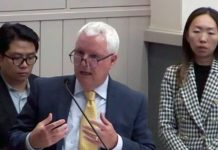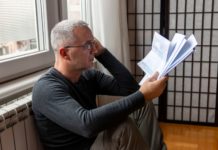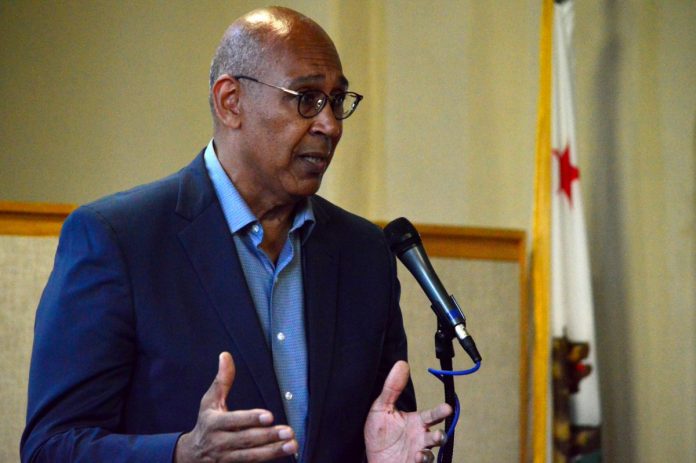With only days to go before an Aug. 30 legislative deadline, Assemblyman Chris Holden is working to save AB 29, his bill to eliminate the section of State Route 710 between Alhambra and Pasadena from the state’s freeway and expressway system.
Holden’s bill, aimed at ensuring the state can never again consider a freeway or tunnel to fill the “gap” between I-10 and I-210, was placed in the “suspense file” Aug. 19. If it is not lifted from suspense and passed out of the Senate Appropriations committee by Aug. 30, it will be dead for the year.
Holden’s bill was placed in suspense only a week after the formal removal of its other material provisions. Those provisions were aimed at ensuring Caltrans and Metro would work directly with South Pasadena, Pasadena and Alhambra on the terms for agreements relating to the disposal of Caltrans property around the northern and southern “stubs” of the abandoned freeway, and to give those cities the right of first refusal to purchase Caltrans real property in the corridor and to receive land relinquished by the state.
But Holden agreed to remove those provisions July 9 to win the vote of Sen. Susan Rubio, who said she could not support the bill as Holden wrote it because it did not sufficiently protect the interests of other cities in her 22nd legislative district.
It appeared the same problem may have driven the suspension.
Garo Manjikian, Holden’s press secretary, said the reason the bill was put in suspense can be found in a brief comment tagged to the end of an Appropriations Committee staff analysis. There, the staff said it is ”unclear what the practical effect” will be of the sole remaining provision of the bill—removing the 710 North segment from the state’s highway system—because the stubs will still be owned and controlled by Caltrans. Removal of the stubs from the system would nullify existing agreements with the cities over how the stubs connect with local roadways. Those agreements would have to be renegotiated, but provisions to do just that were the ones removed from the bill.
Manjikian said Holden is “working on amendments to address the concerns but I cannot speak to the specifics at this time.”
Adding to the intrigue is SB 7, Senator Anthony Portantino’s bill which would also eliminate the 710 North gap from the freeway and expressway system. The Portantino bill has other provisions that require Caltrans to offer surplus nonresidential property it owns in the 710 corridor at a value relative to current use, and prohibiting Caltrans from raising the rent on its low-income tenants.
The state Department of Finance opposes SB 7 because the reduced sales revenue is expected to be in the tens of millions of dollars, which will in turn “reduce the amount of Genearal Fund available for reimbursement of transportation debt service costs.” Finance said it also opposes SB 7 because it “limits the flexibility of the state in the future if it decides that constructing a freeway or expressway is the best option for this section of Route 710.”
SB 7 was also placed on suspense by the Appropriations Committee. Portantino’s Sacramento staff insists that is a routine process, as did Minwoo “David” Kim, who Portantino added to his district staff last month to be “responsible” for South Pasadena, San Marino and La Cañada Flintridge. Kim attended South Pasadena’s Aug. 21 city council session. There, he told the South Pasadenan News that placing AB 29 and SB 7 in suspense was simply procedural. “That’s what I can share at this point.” Whatever is going on with the Holden bill is “not something our office is handling or aware of. There is nothing I can give you that hasn’t already been released to the public.”
Portantino’s role is critical because, as chairman of the Appropriations Committee, he will be making the decisions as to which bills are lifted from suspense.
“Suspense is the least transparent or democratic process” of the legislative session, according to David Jones, the long-time Sacramento lobbyist who has been working the 710 legislation for South Pasadena and Pasadena. As chairman, Portantino currently has the fate of some 400 bills in his hands, Jones said, and their authors are trying to pitch him as to why their bill should be brought out of suspense and included in the comprehensive authorization package due to be voted on Aug. 30.
But all that lobbying is behind closed doors, Jones said. Moreover, at this point in the legislative session, “it becomes a war” between the Assembly and Senate, rather than between Republicans and Democrats. Legislators with bills in suspense in one chamber can try to gain leverage by getting bills placed in suspense in the other chamber.
Members of South Pasadena’s Freeway and Transportation Commission this week said the stripping of Holden’s legislation might aide its passage, since there are fewer provisions to which other legislators may object.
Any bill that is lifted from suspense would have to be passed out of Appropriations by Aug. 30 and then to a floor vote. Since both AB 29 and SB 7 were amended in the other chamber, they would both have to then return for another floor vote in their chamber of origin. All of that must happen by Sept. 13, whereupon the governor would have 30 days to sign the bill.















.png)











